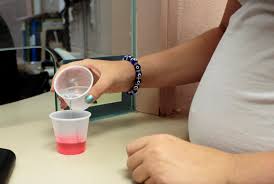Methadone was developed to treat pain in patients suffering from cancer. The drug is used to combat the symptoms of withdrawal for people suffering from opiate addiction in a drug treatment center. Under no circumstances should anyone abuse this drug by taking more than the prescribed dosage from a Physician.
Patients that use the drug for treatment can become tolerant to it. The risk of becoming addicted during treatment is possible. The drug is primarily used in rehabilitation facilities to cure patients that are using other opiates. People being treated for other opiate addiction may be prescribed the drug over long periods of time that can last years.
One dose of methadone can relive withdrawal systems in rehab patients for an entire day if given the correct amount. It can be taken orally in tablet or liquid form. The drug can be administered through injection into the blood stream. Methadone is a schedule 2 controlled substance regulated by the federal government. It is illegal to purchase the drug without a prescription.
Health Problems To Discuss With Your Doctor
According to BD Health Services, “All health problems should be explained to the physician so he can prescribe the right dosage of any medications.” Some of the health issues that could cause serious complications during use of the drug can include any of the following.
- Heart disease and cardiac arrhythmia.
- Low blood levels of magnesium and potassium.
- Seizures.
- Mental illness.
- Liver and kidney problems.
- Thyroid related health problems.
- Traumatic brain injury.
- Drug or alcohol addiction.
- Possible complications from pregnancy.
Methadone Side Effects
Seek the help of medical professionals in the event of serious complications from taking Methadone. People that have taken other types of narcotics can have serious reactions to the drug. Some of the complications associated with treatment are listed below.
- Allergic reactions that include swelling.
- Breathing difficulties.
- Faintness or dizziness.
- Heart arrhythmia.
- Sexual dysfunction associated with taking the medication.
- Nausea and vomiting
- Severe constipation or diarrhea.
- Muscle stiffness and loss of coordination.
- Hallucinations.
- Fever or shivering.
- Difficulty in swallowing and dry mouth.
- Severe skin reactions that could include a rash and itching.
Mixing Other Drugs with Methadone
Avoid drinking alcohol while taking the drug. Under no circumstances mix illegal drugs during use of methadone. Some other drugs may cause serious health issues in combination with this drug. Anyone taking the medication should inform their health provider of all medicines that they currently use or used in the recent past.
Methadone has a narcotic effect that produces drowsiness in patients. Avoid taking the drug unless authorized by the physician while using any medications for sleeplessness or other pain medications classified as a narcotic. Medicines used to treat depression or seizures should be explained to the healthcare provider before taking prescription methadone.
The ability to drive a motor vehicle or operate machinery can be drastically affected by abusing the drug. Intentional recreational use of methadone is dangerous behavior. Some people that misuse the drug can develop physical withdrawal symptoms if they are unable to obtain it for addiction.
Becoming addicted to methadone can lead many people to seek extreme measures in order to obtain the drug. Emergency hospital visits and outpatient treatment centers are two areas that people use to obtain the drug for illegal use. High tolerance and physical dependence are common in people that use the drug illegally.
Additional Health Risks Associated With Methadone
Respiratory problems and death can occur in children that accidentally swallow methadone obtained through patient subscriptions or purchased illegally. Seek medical help immediately if an overdose or children are suspected of accidentally ingesting the drug.
Women that are pregnant or breastfeeding should consult a doctor before taking methadone. The possibility of withdrawal symptoms can develop with a newborn baby after taking prescription methadone.
For more detailed information about methadone treatment and to learn about possible addiction:
http://www.cdc.gov/vitalsigns/MethadoneOverdoses/index.html
http://www.samhsa.gov/medication-assisted-treatment/treatment/methadone




